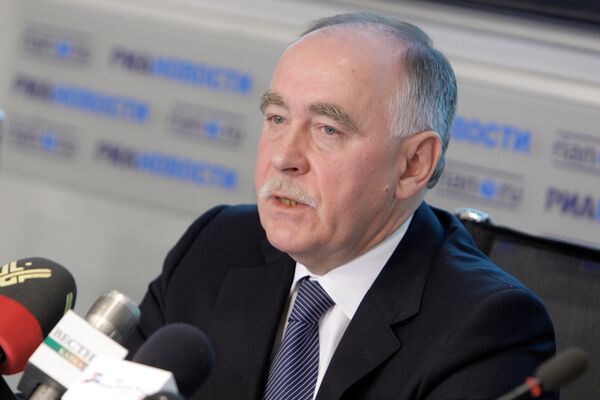NATO has had at best zero effect on the drugs trade in Afghanistan since its troops entered the country, and the problem remains far from a priority for the Western military alliance, Russia's top anti-narcotics official says.
Since NATO began operations in Afghanistan, heroin production in the country has increased 40 times, Federal Drug Control Service chief Viktor Ivanov said in an interview published on Friday in the state Rossiiskaya Gazeta newspaper.
"Clearly, therefore, the effect of the stay of the NATO military contingent in Afghanistan is, in this sense, zero, if not negative," Ivanov said.
NATO's policy on opium production in Afghanistan has long been a sore point with Moscow. Ivanov said the strategy approved by the military alliance at its November summit in Lisbon showed that the fight against the drugs trade in Afghanistan remained low on its list of priorities.
"Drugs are only mentioned twice, and then in passing, offset by commas. This says that in such an important policy document there was no room for measures to combat drug trafficking," he said.
In the face of NATO's apparent disinterest in the problem, which has seen cheap Afghan heroin flood into Russia over the past decade with serious social consequences, Russia has begun to take a more active role in Afghanistan.
Earlier this month, Ivanov agreed with his Afghan counterpart to increase the number of Russian anti-drugs officers in Kabul, while in November joint operations with U.S. forces resulted in the destruction of four drugs laboratories and 1 ton of heroin, worth an estimated $250 million.
Ivanov did say that Russia was seeing increased cooperation with the European Union, and Russian law enforcement efforts were having an effect domestically.
Much of the heroin produced in Afghanistan is trafficked through Central Asia to Russia and on to Europe. The trade has lead to a sharp rise in drug consumption in Russia, which now consumes for an estimated 20% of the world's heroin. Official figures show 30,000-40,000 people are killed by drugs in Russia every year.
MOSCOW, December 24 (RIA Novosti)


